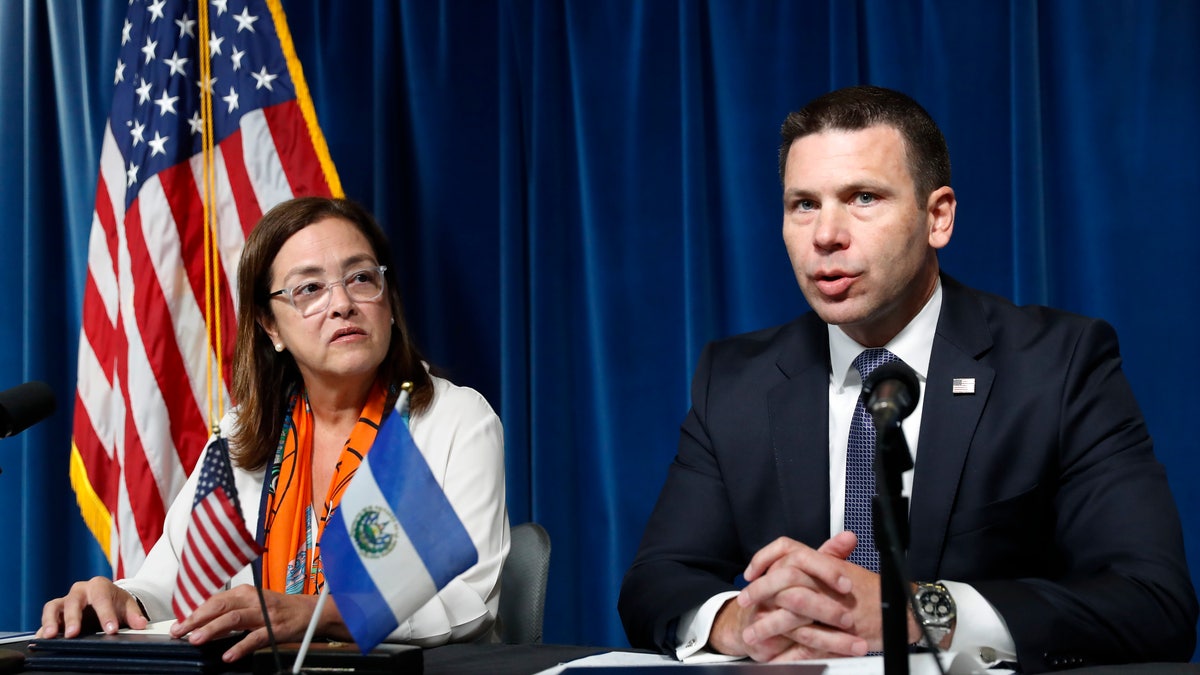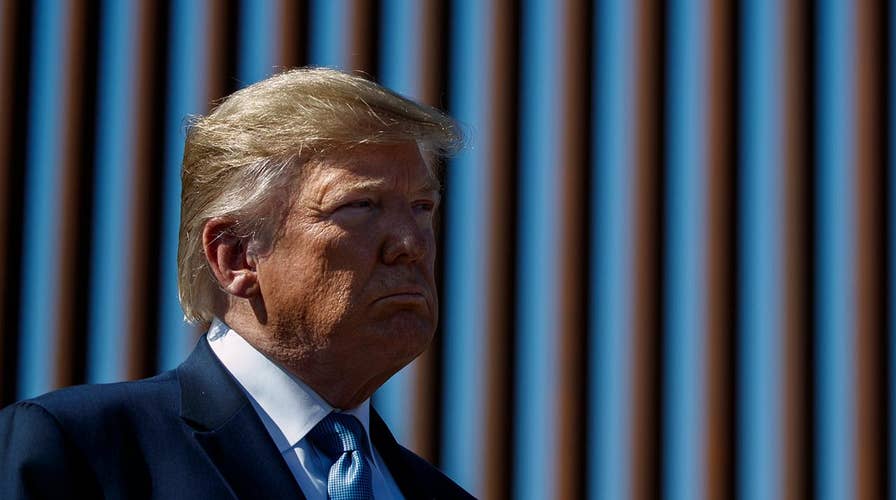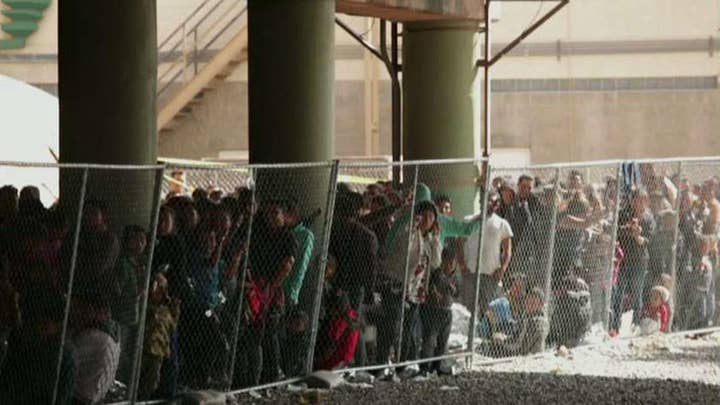Trump allows border agents to interview asylum seekers
Reaction and analysis from former acting ICE director and Fox News contributor Tom Homan.
The Trump administration on Friday signed an "asylum cooperative agreement" with El Salvador that would mean migrants who pass through that country need to have first sought and been denied asylum there before continuing to the U.S.
It marked the latest in a rapid-fire series of moves by the administration to tackle the migrant crisis at the southern border.
The agreement was signed by Acting Department of Homeland Security Secretary Kevin McAleenan and El Salvador's Foreign Minister Alexandra Hill, with both officials saying it was a sign of better relations between the two countries since the pro-U.S. President Nayib Bukele took office earlier this year. Specifics of the agreement were not immediately available.
INSIDE TRUMP'S IMMIGRATION TENT COURTS: CONTROVERSIAL SYSTEM MEANS TO FAST-TRACK ASYLUM BACKLOG
"As you all know, irregular immigration has been an issue for the last 30-odd years and now we've reached levels where it is extremely important that both the U.S and El Salvador deal with this issue conjointly," Hill said. She said the agreement includes items of information sharing and biometrics, as well as help in resettling returning migrants.
"This will build on the good work we have accomplished already with El Salvador's neighbor Guatemala in building protection capacity to try and further our efforts to provide opportunities to seek protection for political, racial, religious or social group persecution as close as possible to the origin of individuals that need it," McAleenan said.

Acting Secretary of Homeland Security Kevin McAleenan speak during a news conference with El Salvador Foreign Affairs Minister Alexandra Hill at the U.S. Customs and Border Protection headquarters in Washington, Friday, Sept. 20, 2019. (AP Photo/Pablo Martinez Monsivais)
He added that since Bukele took office, apprehensions of El Salvadorans at the U.S. southern border had dropped 62 percent and that that country's government has put a further 300 immigration agents and 800 police officers to patrol the country's border. He said the government has "made good" on its promises of greater cooperation with the U.S.
"The core of it is recognizing El Salvador's development of their own asylum system and a commitment to help them build that capacity," he said.
The pact would be similar to that signed in July with Guatemala, yet to be fully implemented, that would require migrants who cross into the country to apply for protection there instead of at the border. The administration has also forged an agreement with Mexico that has seen that country up its number of troops at the border and the expansion of the Migrant Protection Protocols, by which migrants are sent to Mexico to await their immigration hearings.
Officials have touted the diplomacy as a primary factor in the sharp drop in migrant apprehensions at the border over the summer: 64,006 migrants were apprehended in August, a drop of 56 percent since May.
“That international effort is making an impact. Mexican operational interdiction is certainly [the] highlight of that effort, but the shared responsibility we’re seeing in the region, governments stepping up and saying we also own this,” McAleenan told Fox News last week.
BORDER APPREHENSIONS PLUNGE AS TRUMP ADMINISTRATION HAILS MEXICO PACT
However, many of the moves have been controversial with Democratic lawmakers and immigrant rights groups, and a pact with El Salvador is likely to be met with further outrage. El Salvador is one of Central America’s most violent countries and any agreement that would keep migrants there is almost certainly likely to be decried by critics as one that puts migrants in danger. Many asylum-seekers are fleeing violence in that country.
CLICK HERE TO GET THE FOX NEWS APP
The Trump administration has also made agreements with Central American countries, including El Salvador, on issues such as human smuggling and border security. A senior administration official told reporters last week that Honduras has so far more than doubled its border force after the U.S. requested they triple it. McAleenan was in El Salvador last month, where he signed a letter of of intent with four elements of possible collaboration with the El Salvadoran government.
The administration also scored a significant win at the Supreme Court last week, when the court allowed the administration’s rule banning migrants who had crossed through other countries from claiming asylum in the U.S. That move would make most migrants from countries south of the border other than Mexico ineligible for asylum in the U.S.
The Associated Press contributed to this report.














































